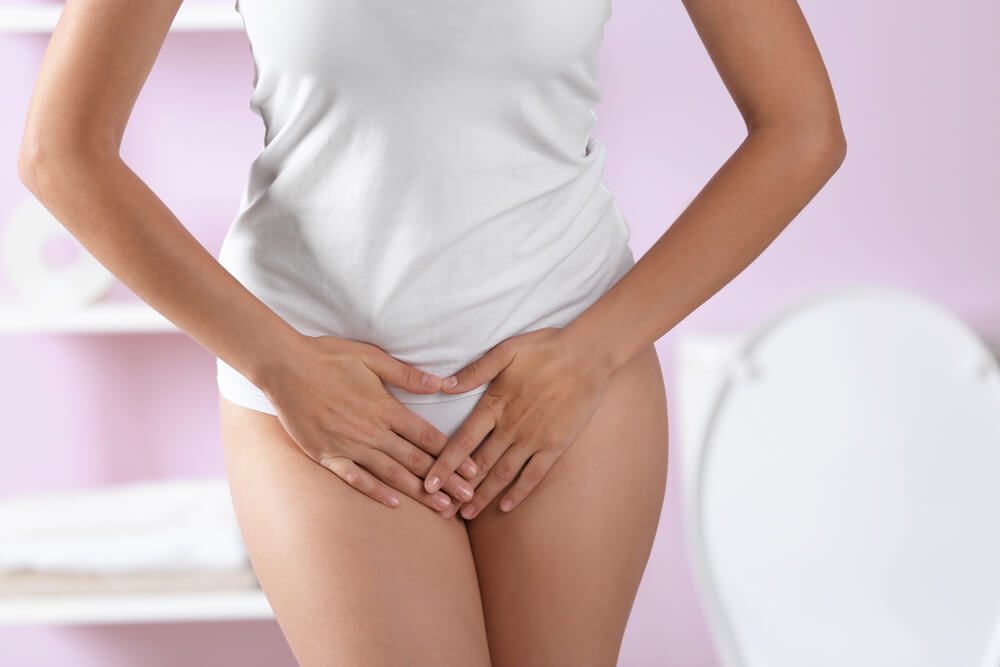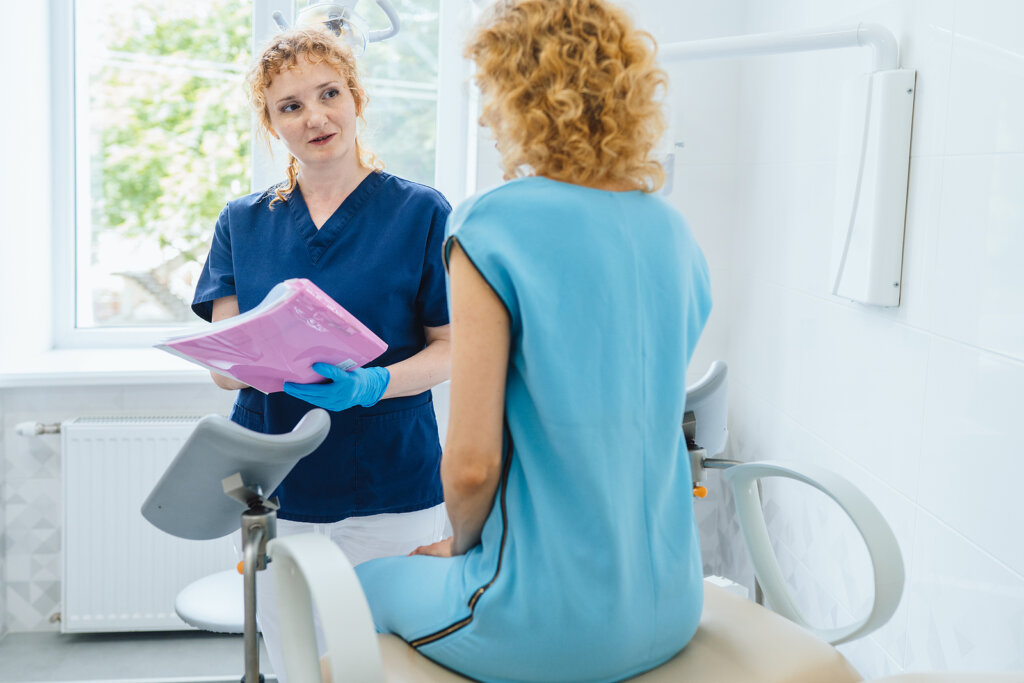Vaginal Probiotics: What Are They and When Are They Needed?

The use of probiotics has increased in recent years. They are live microorganisms that, in adequate amounts, can bring health benefits. They have become popular for digestive health, although different applications are being studied in other body systems. Today we’re going to talk about vaginal probiotics and what we know about them.
In the first place, we need to tell you that there’s no solid evidence regarding the effectiveness of vaginal probiotics. It’s true that there are promising studies, but there’s no general consensus to support its application. Even so, we have taken it upon ourselves to compile the experts’ main findings and explain them clearly and concisely. In this way, you can have a basic knowledge about them before choosing to use them.
What are vaginal probiotics?
Vaginal probiotics are supplements composed of microorganisms that, if administered correctly, can contribute to the balance of the vaginal flora.
They are mainly sold in two types: through oral pills and through suppositories that are inserted directly into the vagina. Its use has become popular in recent years, although researchers in the last century had already warned of its possible benefit.
Before going any further, you should understand what the vaginal microbiome is. On average, about 50 species of organisms live inside a healthy vagina (they do so by the thousands).
There are many types, although one species called lactobacillus stands out in particular. It’s a bacterium (a group of bacteria, to be more precise) that protects the vaginal mucosa against potentially harmful pathogenic microorganisms.
These bacteria maintain an almost perfect balance in the vaginal area, preventing the proliferation of other bacteria that can cause infections and other complications.
They do so through various mechanisms, although experts have basically identified three: specific adherence to the epithelium (it blocks its settlement), the production of antimicrobial compounds, and coaggregation with pathogens (which enhances its microbiocidal effect).
There are many subtypes of these bacteria, and researchers have found that in premenopausal women the most common are L. iners, L. crispatus, L. gasseri, and L. jenesenii. There are many mechanisms that can cause an imbalance in the number of these types of bacteria in the microbiome.
The most common are having sex without condoms, poor hygiene habits, menstruation, and hormonal changes. When this happens, harmful bacteria can increase their population rapidly.
Vaginal probiotics are made up of lactobacilli. The theory tells us that, if the population growth of these microorganisms is promoted, others that are associated with complications in the area will be kept under control.
Keep in mind that these bacteria don’t completely eliminate complications, they only reduce them. Many harmful pathogenic organisms can live alongside them.
What are vaginal probiotics used for?

The use of vaginal probiotics is relatively recent. They became popular through advertising campaigns by companies in which they claim that they’re effective in preventing a variety of complications. Dozens of studies have been carried out that indicate a possible efficacy to treat and control some anomalies. Here are the most important ones:
- As a treatment for vaginal candidiasis: Vaginal candidiasis is one of the most recurrent complications in women. A recent systematic review found slight improvements in the use of vaginal probiotics as a treatment for this infection. Its use wasn’t associated with complications and slightly reduced the relapses in those affected.
- As a therapy for bacterial vaginosis: A meta-analysis published in 2014 in the Archives of Gynecology and Obstetrics found limited evidence on the effectiveness of probiotic therapy for treating bacterial vaginosis. This infection is, along with vaginal candidiasis, one of the most common in the vaginal tract.
- To promote a healthy pregnancy: A study published in Fetal Diagnosis and Therapy in 2017 suggested that the use of vaginal probiotics may be effective in preventing premature rupture of membranes (PROM). That is, the rupture of the amniotic sac before 37 weeks of gestation.
- To improve reproductive health: Given its ability to ensure some stability and balance in vaginal health, its potential efficacy in improving reproductive health has been noted. The results aren’t conclusive, but no adverse effects of its application were found either.
It’s also thought that they may be useful in preventing the recurrence of urinary tract infections and in dealing with some sexually transmitted infections (such as trichomoniasis). Benefits have been reported from all walks of life, but these are the main ones. As we have already warned, and the researchers themselves warn, more studies should be carried out in this regard.
Do you really need to use them?

As the researchers point out, there’s currently no consensus regarding the use of probiotics for the treatment of vaginal infections and their sequelae. In fact, they warn that they are more of a commercial phenomenon than anything else.
Already in 2013, Arnold predicted that we were in the golden age of probiotics, and this was partly due to the advertising campaigns that endorse their use as an essential supplement.
Harvard Health Publishing warns that their use is in any case debatable, at least if we consider the benefits promised by the companies behind them.
By the way, probiotics (both vaginal and other types) are not regulated in all countries, so there are no standards for the exact amount and type to include in supplements.
Vaginal probiotics are not the holy grail touted in advertising campaigns, so expectations of them must be measured. It’s true that there is evidence that supports some benefits, but there’s no general consensus; many studies lack methodological rigor or are directly financed by said companies.
All these reflections are useful so that you can understand that the use of vaginal probiotics isn’t recommended by the entire scientific community. Although no adverse effects have been identified so far, its positive effects could be less than those announced.
If you have any questions, consult your gynecologist, who will be able to give you personalized recommendations to enhance your vaginal health and, in accordance with their criteria, will endorse their use.
The use of probiotics has increased in recent years. They are live microorganisms that, in adequate amounts, can bring health benefits. They have become popular for digestive health, although different applications are being studied in other body systems. Today we’re going to talk about vaginal probiotics and what we know about them.
In the first place, we need to tell you that there’s no solid evidence regarding the effectiveness of vaginal probiotics. It’s true that there are promising studies, but there’s no general consensus to support its application. Even so, we have taken it upon ourselves to compile the experts’ main findings and explain them clearly and concisely. In this way, you can have a basic knowledge about them before choosing to use them.
What are vaginal probiotics?
Vaginal probiotics are supplements composed of microorganisms that, if administered correctly, can contribute to the balance of the vaginal flora.
They are mainly sold in two types: through oral pills and through suppositories that are inserted directly into the vagina. Its use has become popular in recent years, although researchers in the last century had already warned of its possible benefit.
Before going any further, you should understand what the vaginal microbiome is. On average, about 50 species of organisms live inside a healthy vagina (they do so by the thousands).
There are many types, although one species called lactobacillus stands out in particular. It’s a bacterium (a group of bacteria, to be more precise) that protects the vaginal mucosa against potentially harmful pathogenic microorganisms.
These bacteria maintain an almost perfect balance in the vaginal area, preventing the proliferation of other bacteria that can cause infections and other complications.
They do so through various mechanisms, although experts have basically identified three: specific adherence to the epithelium (it blocks its settlement), the production of antimicrobial compounds, and coaggregation with pathogens (which enhances its microbiocidal effect).
There are many subtypes of these bacteria, and researchers have found that in premenopausal women the most common are L. iners, L. crispatus, L. gasseri, and L. jenesenii. There are many mechanisms that can cause an imbalance in the number of these types of bacteria in the microbiome.
The most common are having sex without condoms, poor hygiene habits, menstruation, and hormonal changes. When this happens, harmful bacteria can increase their population rapidly.
Vaginal probiotics are made up of lactobacilli. The theory tells us that, if the population growth of these microorganisms is promoted, others that are associated with complications in the area will be kept under control.
Keep in mind that these bacteria don’t completely eliminate complications, they only reduce them. Many harmful pathogenic organisms can live alongside them.
What are vaginal probiotics used for?

The use of vaginal probiotics is relatively recent. They became popular through advertising campaigns by companies in which they claim that they’re effective in preventing a variety of complications. Dozens of studies have been carried out that indicate a possible efficacy to treat and control some anomalies. Here are the most important ones:
- As a treatment for vaginal candidiasis: Vaginal candidiasis is one of the most recurrent complications in women. A recent systematic review found slight improvements in the use of vaginal probiotics as a treatment for this infection. Its use wasn’t associated with complications and slightly reduced the relapses in those affected.
- As a therapy for bacterial vaginosis: A meta-analysis published in 2014 in the Archives of Gynecology and Obstetrics found limited evidence on the effectiveness of probiotic therapy for treating bacterial vaginosis. This infection is, along with vaginal candidiasis, one of the most common in the vaginal tract.
- To promote a healthy pregnancy: A study published in Fetal Diagnosis and Therapy in 2017 suggested that the use of vaginal probiotics may be effective in preventing premature rupture of membranes (PROM). That is, the rupture of the amniotic sac before 37 weeks of gestation.
- To improve reproductive health: Given its ability to ensure some stability and balance in vaginal health, its potential efficacy in improving reproductive health has been noted. The results aren’t conclusive, but no adverse effects of its application were found either.
It’s also thought that they may be useful in preventing the recurrence of urinary tract infections and in dealing with some sexually transmitted infections (such as trichomoniasis). Benefits have been reported from all walks of life, but these are the main ones. As we have already warned, and the researchers themselves warn, more studies should be carried out in this regard.
Do you really need to use them?

As the researchers point out, there’s currently no consensus regarding the use of probiotics for the treatment of vaginal infections and their sequelae. In fact, they warn that they are more of a commercial phenomenon than anything else.
Already in 2013, Arnold predicted that we were in the golden age of probiotics, and this was partly due to the advertising campaigns that endorse their use as an essential supplement.
Harvard Health Publishing warns that their use is in any case debatable, at least if we consider the benefits promised by the companies behind them.
By the way, probiotics (both vaginal and other types) are not regulated in all countries, so there are no standards for the exact amount and type to include in supplements.
Vaginal probiotics are not the holy grail touted in advertising campaigns, so expectations of them must be measured. It’s true that there is evidence that supports some benefits, but there’s no general consensus; many studies lack methodological rigor or are directly financed by said companies.
All these reflections are useful so that you can understand that the use of vaginal probiotics isn’t recommended by the entire scientific community. Although no adverse effects have been identified so far, its positive effects could be less than those announced.
If you have any questions, consult your gynecologist, who will be able to give you personalized recommendations to enhance your vaginal health and, in accordance with their criteria, will endorse their use.
- Arnold, C. The pros and cons of probiotics. The Lancet. Infectious Diseases. 2013; 13(7): 571-572.
- Buggio L, Somigliana E, Borghi A, Vercellini P. Probiotics and vaginal microecology: fact or fancy?. BMC Womens Health. 2019;19(1):25. Published 2019 Jan 31.
- Cribby S, Taylor M, Reid G. Vaginal microbiota and the use of probiotics. Interdiscip Perspect Infect Dis. 2008;2008:256490.
- Daskalakis GJ, Karambelas AK. Vaginal Probiotic Administration in the Management of Preterm Premature Rupture of Membranes. Fetal Diagn Ther. 2017;42(2):92-98.
- Huang H, Song L, Zhao W. Effects of probiotics for the treatment of bacterial vaginosis in adult women: a meta-analysis of randomized clinical trials. Arch Gynecol Obstet. 2014 Jun;289(6):1225-34.
- López-Moreno A, Aguilera M. Vaginal Probiotics for Reproductive Health and Related Dysbiosis: Systematic Review and Meta-Analysis. J Clin Med. 2021 Apr 2;10(7):1461.
- Martín, R., Soberón, N., Vázquez, F., & Suárez, J. E. La microbiota vaginal: composición, papel protector, patología asociada y perspectivas terapéuticas. Enfermedades Infecciosas y Microbiología Clínica. 2008; 26(3): 160-167.
- Shalev E, Battino S, Weiner E, Colodner R, Keness Y. Ingestion of yogurt containing Lactobacillus acidophilus compared with pasteurized yogurt as prophylaxis for recurrent candidal vaginitis and bacterial vaginosis. Arch Fam Med. 1996 Nov-Dec;5(10):593-6.
- Xie HY, Feng D, Wei DM, Mei L, Chen H, Wang X, Fang F. Probiotics for vulvovaginal candidiasis in non-pregnant women. Cochrane Database Syst Rev. 2017 Nov 23;11(11):CD010496.
Este texto se ofrece únicamente con propósitos informativos y no reemplaza la consulta con un profesional. Ante dudas, consulta a tu especialista.







